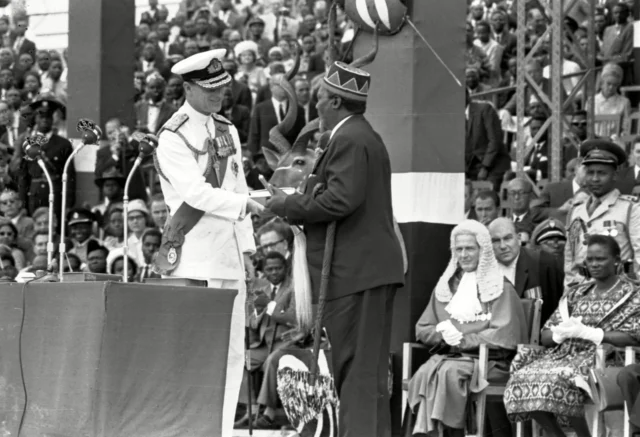Kenya’s political culture, even after 62 years of independence, remains deeply premised on the Kenyan African culture and the legacy of colonial rule. What stands out most painfully is the immaturity of Kenya’s political system; ethnic loyalty and tribalism dominate elections and public discourse, and political parties are often mere vehicles for shortsighted ethnic interests rather than platforms for policy debate or national progress. Kinship-based patronage and nepotism shape access to power and resources, sidelining merit and ideas to the periphery.
Personality cults thrive, turning politics into spectacles around individuals and personality rather than institutions, and marginalisation of youth and women persists as the byproducts of a system that rewards closeness, not competence. The result is a politics that rarely rises above zero-sum games. Elections are held every five years, but no meaningful development after the five years.
Many of Kenya’s political challenges can be traced to the negative influences of the Kenyan African tradition, which continues to shape an immature political landscape. Ethnic loyalty and tribalism, once foundations of community solidarity, have shifted into divisive forces that prioritise ethnic self-interest over national goals. These dynamics foster exclusion, with public positions and resources distributed along ethnic lines, creating cycles of favouritism and political tension.
It is normal for a state official to appoint their unqualified tribesman as a government official. Kinship-based patronage and nepotism, rooted in historic systems of mutual aid, now serve to entrench corruption: public offices are routinely allocated not on merit, but through familial and ethnic connections, eroding institutional integrity and undermining professionalism.
The traditional reverence for elders and chiefs has evolved into the “personality cult” phenomenon, where political power is concentrated around ethnic kingpins who discourage dissent and stifle debate. Finally, social exclusion and marginalisation have grown severe as clan and ethnic loyalties draw firm boundaries between “insiders” and “outsiders,” perpetuating injustice and creating fertile ground for manipulation, conflict, and hindered nation-building. It is almost impossible for one to get a job in a county that they do not originate from.
Colonialism has played a pivotal role in shaping the immaturity of Kenya’s political system by embedding practices and structures that persist to this day. The British “divide and rule” approach actively promoted ethnic fragmentation, favoring certain “loyalist” groups while sidelining others, and encouraging the rise of ethnic-based political associations like the Kikuyu Central Association, Luo Union, and Luhya Union; many of which eventually merged into national parties such as KANU and KADU. Repressive governance, marked by authoritarian policing and restrictive laws, normalised state violence and suppressed political freedoms—some of these colonial-era laws remain in force, continuing to curtail open democracy.
The alienation of land through policies like the Crown Lands Ordinance dispossessed entire communities, creating native reserves and perpetuating marginalisation; after independence, land allocation and patronage remained tools for rewarding loyalist elites and cementing ethnic advantage, fueling ongoing conflicts. Colonial structures were further entrenched when these elites inherited and protected the interests of foreign corporations, allowing unequal political influence and entrenched corporate capture. Beyond these tangible outcomes, the psychological scars of colonial violence and humiliation instilled a lasting suspicion of central authority, deepening resistance and inhibiting the development of unified, mature political institutions.
A genuine solution to Kenya’s immature political culture lies in embracing the concept of a mass political party; one built on broad inclusion, ideology, and collective action. The Kenya African National Union (KANU), particularly during its formative years, exemplified this potential. KANU adopted African Socialism, as articulated in Sessional Paper No. 10 of 1965, blending communal values with pragmatic development planning and a commitment to national unity. By organizing as a mass party, KANU sought to transcend Kenya’s ethnic divisions, mobilizing support from across regions and social groups, and establishing a platform focused on shared policies and aspirations rather than narrow tribal loyalties or personality cults.
Mass party politics addresses the recurring pitfalls of Kenya’s immature politics: instead of fragmenting the electorate into ethnic or patronage-driven camps, it fosters inclusive participation and issue-based debate. Such
parties empower marginalized groups, including youth and women, shifting political engagement from personal loyalty to collective goals. Furthermore, mass parties serve as institutional bulwarks against excessive presidential authority, promoting internal checks and encouraging consensus-based decision-making.
Crucially, they dilute the influence of money and elite patronage by relying on grassroots mobilisation rather than exclusive networks, making it harder for a small clique to dominate resource allocation and political discourse. As KANU initially demonstrated, mass party politics can help build a shared national identity, strengthen accountability, and lay the foundation for a mature democracy grounded in the realities and aspirations of all citizens.
But most importantly, we have to reflect on the words of President Daniel Arap Moi, long-serving Chairman of KANU, memorably cautioned, “Siasa Mbaya Maisha mbaya” (“Bad politics, bad life”), emphasising the profound impact that divisive, immature politics can have on citizens’ everyday well-being. He repeatedly urged Kenyans, “Tusiweke siasa yetu kwa misingi ya kikabila” (“Let us not base our politics on tribal foundations”), highlighting that only through mass party politics and transcending ethnic divisions could Kenya realize real national unity and progress. These words remain deeply relevant, serving as a rallying call for a mature, inclusive political culture built on issues, ideas, and shared national purpose.
Alfred Makotsi is a PhD Candidate (International Relations& Diplomacy), Mandela Washington Fellow 2025, PLGP Fellow 2017,







